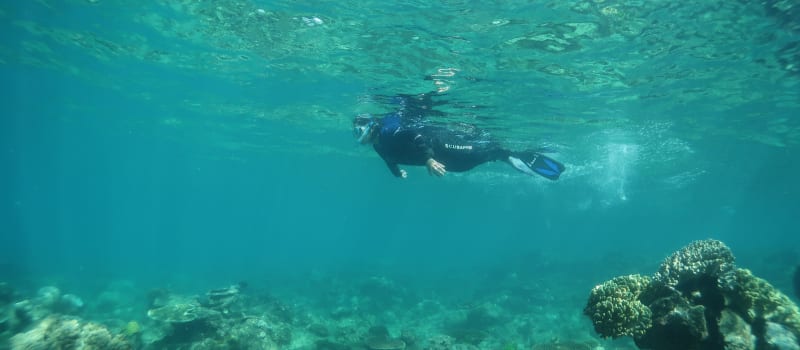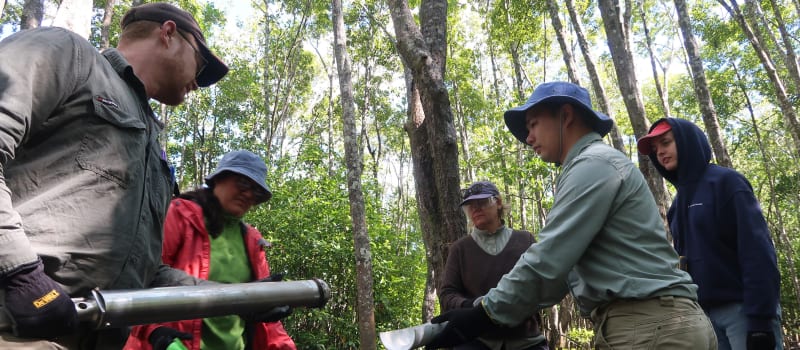Reef danger highlights need for urgent and systemic approaches to living with nature
02 December 2022
Reef danger highlights need for urgent and systemic approaches to living with nature
02 December 2022
The UNESCO recommendation to list the Great Barrier Reef ‘in danger’ should come as no surprise – and flags a deterioration that has been occurring for years. In addition to climate change, inland and coastal land clearing, industrial development, pollution, pests and loss of critical natural systems have damaged the reef.
Earthwatch CEO, Fiona Sutton Wilson, states “This UNESCO recommendation reiterates the urgency and immediacy of the threats facing the reef.
“Over the course of ten years working with our research partners and citizen scientists, we have documented significant declines in the health of the reef from the multiple and increasing threats it faces,” says Sutton Wilson.
The overall threats to the reef are increasing, including marine heatwaves, crown of thorn star fish, land-use change, water quality, erosion, floods, cyclones and storm. These threats also impact adjacent and interconnected ecosystems such as mangroves and saltmarsh.
Earthwatch Chief Scientist, Dr Scott Wilson, notes that this recommendation is a reminder for state and federal governments of the immediacy of action required. “While there has been considerable movement since February’s UNESCO delegation visit, the scale of action must rapidly increase.”
A critical challenge that needs to be addressed urgently is to scale the solutions that take a systems perspective and address the challenges faced by the reef. A broader systems approach – community, environmental, regional – including management of the lands, estuaries and wetlands adjacent to the Great Barrier Reef both contribute to coastal challenges and are part of the solution.
“Climate change is the single biggest threat to the reef, but human impacts are just as critical to address locally, and evidence-based solutions are at hand, ready to scale,” says Dr Wilson.
For more than ten years, Earthwatch has engaged people from Great Barrier Reef communities directly in evidence-based research and action for reef health. We work both in both tidal wetlands – the reef’s coastal frontier – and with research partners in the reef itself. Our work assesses the health and productivity of wetlands in supporting the reef system, and documents reef recovery processes and active interventions to improve rates of coral abundance.

Recovery of the Great Barrier Reef expedition fellow, 2022.

Protecting the Reef's Coastal Frontier expedition fellows with Jock Mackenzie, 2021.
Local communities know that through sustained efforts government, communities and the private sector can collaborate to address these issues.
From Gladstone to the Far North, local communities are committing their knowledge, time and energy to develop and help implement local action plans to manage the threats to the environment and mitigate climate change.
Traditional knowledge and management approaches are inbuilt and reflect the nature-positive values that protect not only the reef for its intrinsic values, but for protection of homes, towns and livelihoods. These plans are extraordinarily impactful at the local scale but require significant and sustained investment to scale and must continue to be underpinned by the world-leading scientific research and innovation being undertaken in reef recovery and mitigation efforts.
The level of commitment required will not be insubstantial, but then nor is the scale nor urgency of the problem. The Great Barrier Reef is not an icon we can afford to lose.

